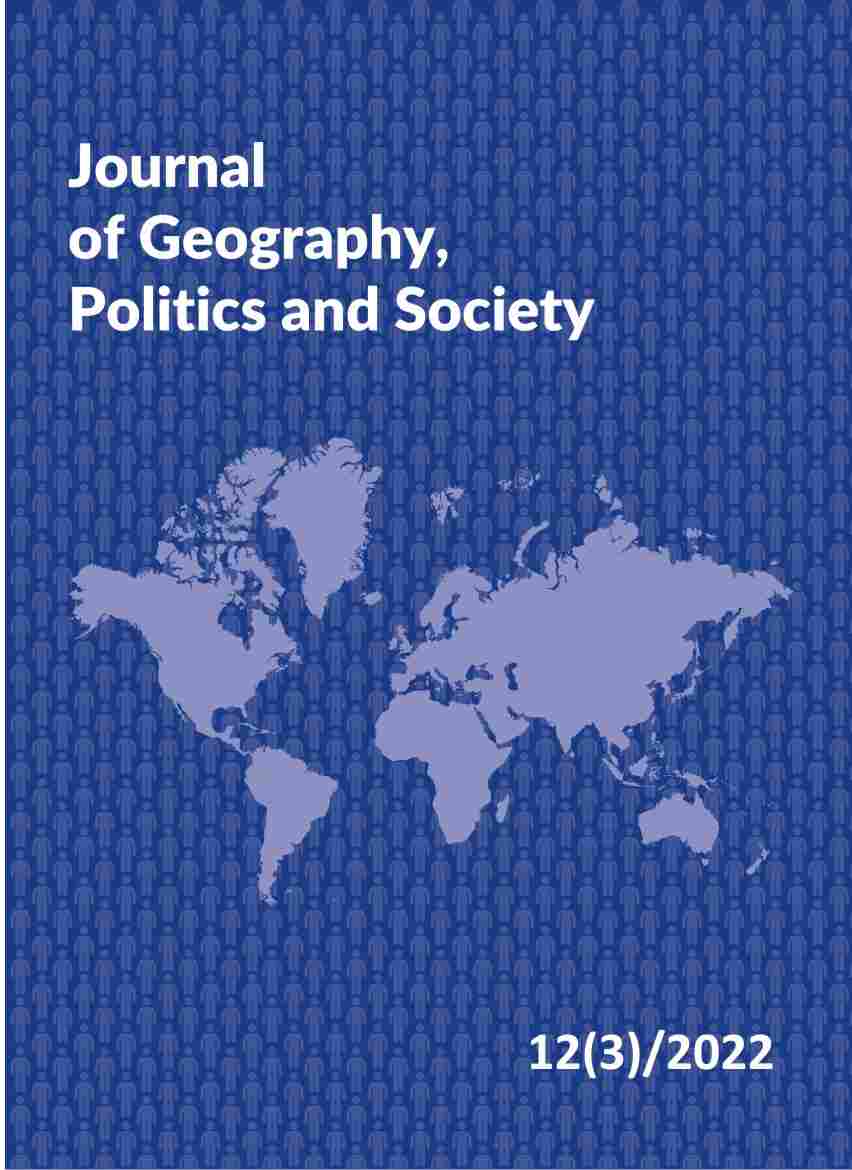Applied governments’ strategies for brain drain prevention
DOI:
https://doi.org/10.26881/jpgs.2022.3.03Keywords:
brain drain, governments’ interventions, regulationAbstract
Currently, many countries are facing the issue of outmigration of highly skilled workers. Based on different strategies and policies, this paper proposes a regulatory framework for brain drain. In this article, we focus on the formats and support instruments through strategies and government policies, followed by their critical assessment. The methodology, based on the review of relevant literature, aims to reflect the academic discourse regarding the issue of brain drain and, particularly, the goal of return migration. Diverse strategies are presented, ranging from financial approach to technology parks, innovation hubs, and talent markets. Moreover, the problems caused by migration, such as brain waste, are investigated. The investigation is based predominantly on European strategies. Future research could precisely focus on the application of strategies adopted and tested by a different country where positive results have already been detected. This work could serve as a stepping stone for the investigation of this phenomenon, the subsequent analysis of strategies and future impact.
Downloads
References
Anghel O.I., 2019, Problems Generated by Poor Support of Young Talented People, Review of Artistic Education, 18(1), 287–292. doi: 10.2478/RAE-2019-0032.
Bartolini L., Gropas R., Triandafyllidou A., 2017, Drivers of highly skilled mobility from Southern Europe: escaping the crisis and emancipating oneself, Journal of Ethnic and Migration Studies, 43(4), 652–673. doi: 10.1080/1369183X.2016.1249048.
Cervantes M., 2005, Attracting, Retaining and Mobilising High Skilled Labour, [in:] OECD, Global Knowledge Flows and Economic Development, OECD Publications Service, Paris, 51–71. doi: 10.1787/9789264107687-4-en.
Čuhlová R., Potužáková Z., 2017, Highly qualified in the Czech Republic, Journal of International Studies, 10(1), 159–172. doi: 10.14254/2071-8330.2017/10-1/11.
Czech Statistical Office, 2019, Foreigners in the Czech Republic – 2019: 4–8. Universities – foreign students, https://www. czso.cz/csu/czso/4-vzdelavani-cizincu-00hvg097q7 (accessed 13 May 2020).
d’Aiglepierre R., et al., 2020, A global profile of emigrants to OECD countries: Younger and more skilled migrants from more diverse countries, OECD Social, Employment and Migration Working Papers, 239, 1–41. doi: 10.1787/0cb305d3-en.
Daugėlienė R., Marcinkevičienė R., 2009, Brain Drain Problem in Lithuania: Possible Actions for its’ solution via Brain Gain, European Integration Studies, 3, 14–22.
Eftimov L., Ristovska A., 2019, The Role of Human Resource Management in Retaining Talent: Empirical Analysis of Youth in the Republic of North Macedonia, Dynamic Relationships Management Journal, 8(1), 29–39. doi: 10.17708/ drmj.2019.v08n01a03.
European Court of Auditors, 2014, Has the ERDF successfully supported the development of business incubators?, Publications Office, Luxembourg. doi: 10.2865/31610.
Freeman G. P., 2006, National models, policy types, and the politics of immigration in liberal democracies, West European Politics, 29(2), 227–247. doi: 10.1080/01402380500512585.
Garoupa N., 2011, Regulation of professions, [in:] D. Levi–Faur (ed.), Handbook on the Politics of Regulation, Edward Elgar Publishing, Cheltenham, 453–468.
Gibson J., McKenzie D., 2009, The microeconomic determinants of emigration and return migration of the best and brightest: Evidence from the Pacific, Institute for the Study of Labor (IZA – Discussion Paper series), 3926, 4–54. doi: 10.1016/j.jdeveco.2009.11.002.
Government of the Czech Republic, 2020, National Reform Programme of the Czech Republic, Government of the Czech Republic, Prague.
Guellec D., Cervantes M., 2001, International mobility of highly skilled workers: From statistical analysis to policy formulation, [in:] International mobility of the highly skilled, OECD Publications Service, Paris, 71–98.
Heitor M., Horta H., Mendonça J., 2014, Developing human capital and research capacity: science policies promoting brain gain, Technological Forecasting and Social Change, 82, 6–22. doi: 10.1016/j.techfore.2013.07.008.
Lipovská H., Fischer J., 2015, Brain Drain – Brain Gain: Slovak Students at Czech Universities, Journal in Efficiency and Responsibility in Education and Science, 8(3), 54–59. doi: 10.7160/eriesj.2015.080301.
Muthanna A., Sang G., 2018, Brain Drain in Higher Education: Critical Voices on Teacher Education in Yemen, London Review of Education, 16(2), 296–307. doi: 10.18546/ LRE.16.2.09.
Nakamuro M., Ogawa K., 2010, Mobility of skilled labor in transition economies: The perspectives from brain–drain, brain–waist, brain circulation and brain gain, Journal of International Cooperation Studies, 18(1), 71–84.
OECD, 2015, Connecting with Emigrants: A Global Profile of Diasporas 2015. OECD Publishing, Paris. doi: 10.1787/9789264239845-en.
OECD, 2020, International Migration Outlook 2020. OECD Publishing, Paris. doi: 10.1787/ec98f531-en.
Petroff A., 2016, Reversing the Brain Drain: Evidence from a Romanian Brain Networking Organization, International Migration, 54(5), 122–135. doi: 10.1111/imig.12268.
Pont B., 2001, Competencies for the knowledge economy. [in:] OECD (ed.), Education policy analysis. OECD Publishing, Paris, 99–118. doi: 10.1787/epa-2001-en.
Semiv L., Hvozdovych Y., 2012, The intellectual migration of the youth in Ukraine: the backgrounds for “brain circulation”, Journal of International Studies, 5(2), 72–81.
White A., 2010, Young People and Migration from Contemporary Poland, Journal of Youth Studies, 13(5), 565–580. doi: 10.1080/13676261.2010.487520.
Zweig D., 2006, Competing for talent: China’s strategies to reverse the brain drain, International Labour Review, 145(1–2), 65–89.
Zweig D., Changgui C., Rosen S., 2004, Globalization and Transnational Human Capital: Overseas and Returnee Scholars to China, The China Quarterly, 179, 735–757.
Zweig D., Chung S. F., 2004, Redefining China’s Brain Drain: ‘Wei Guo Fuwu’ and the ‘Diaspora Option’. Paper presented at The 40th Anniversary Reunion Conference: The State of Contemporary China, The Universities Service Centre for China Studies, The Chinese University of Hong Kong, Hong Kong. January 6–7, 2004.

 Academic Scientific Journals
Academic Scientific Journals




